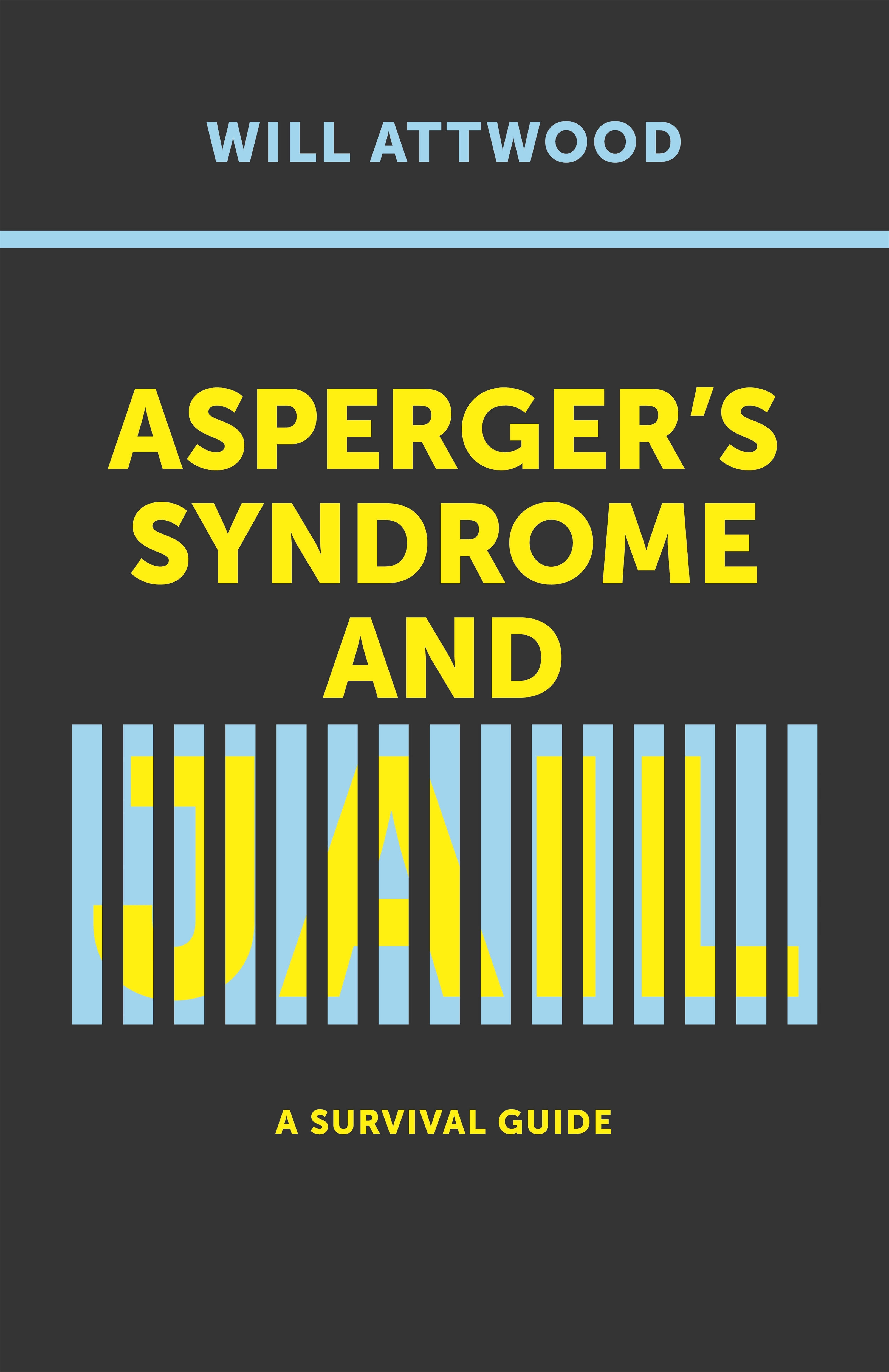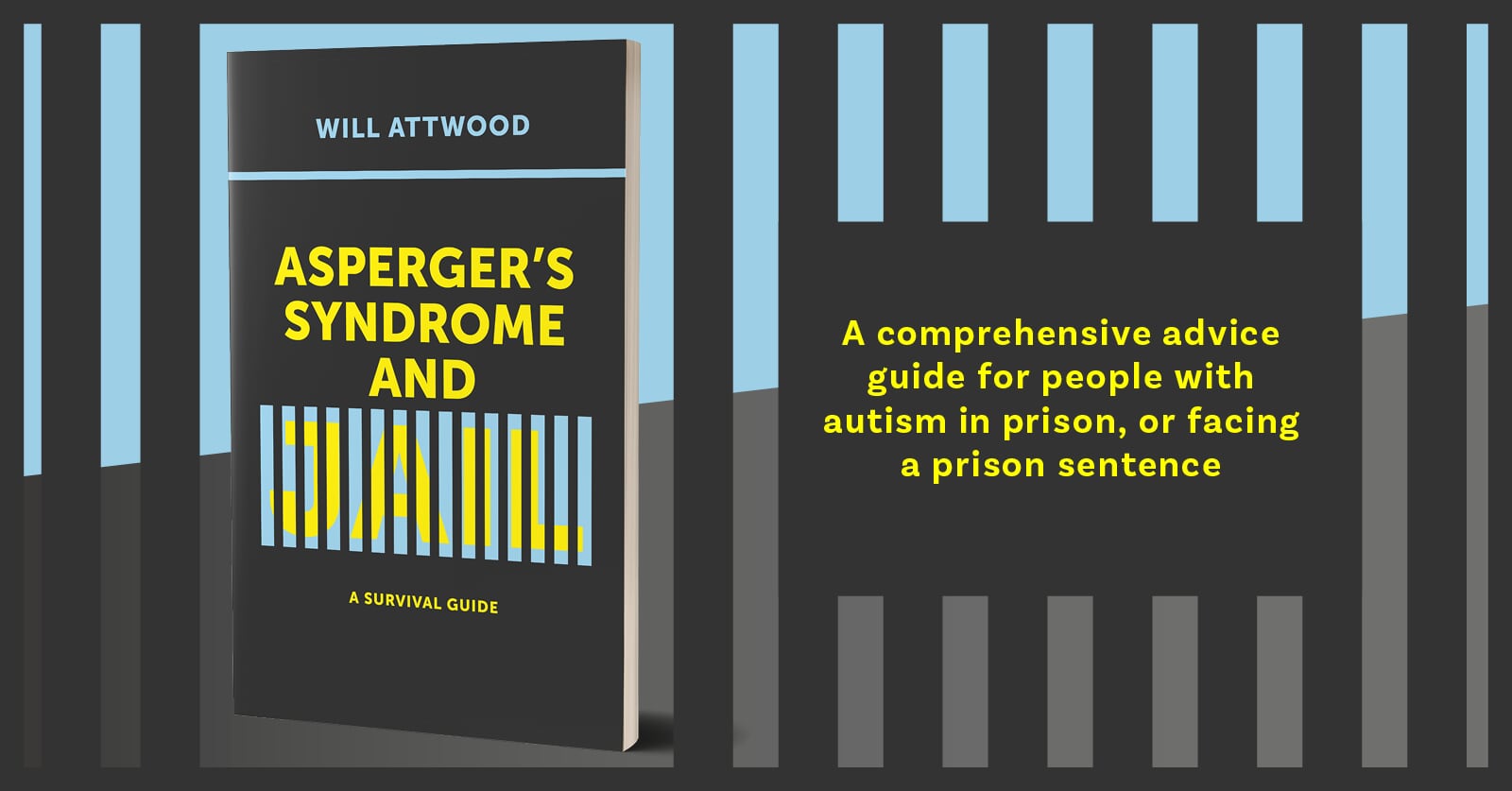Ahead of the publication of his book, Asperger’s Syndrome and Jail, Will Attwood tells us why this book is needed, and how his own experience of incarceration has shaped him.
Having Asperger’s Syndrome can be tough. We sometimes say the wrong thing at the wrong time, or to the wrong person. Subsequently, we spend an unnecessary amount of time ruminating on our social faux pas.
It isn’t easy having Asperger’s Syndrome, as anyone on the spectrum will tell you. But imagine being in a place where if you make a social mistake, instead of a frown, smirk or laughter at your expense, you end up with a black eye and swollen lip, or worse.
Imagine if instead of being able to run to safety, you had nowhere to go and nobody to whom you could turn for help. Imagine waking up every day wondering, “Is this the day someone is going to hurt me, even though I’m trying my very best to appease everyone?”
Imagine that those who should be protecting you, who are paid to protect you, actually do the opposite. And not through thoughtlessness, but malice.
Imagine, then, being backed into a corner, like an animal, with literally nowhere to run. It doesn’t sound too good, does it?
Unfortunately, this is the daily reality facing thousands of people with Asperger’s Syndrome all over the world. More precisely, this is the reality facing those people with Asperger’s Syndrome who are living behind bars. Taking a person’s freedom should be punishment enough. But prison can take a lot more than that. If you are socially vulnerable, as those with Asperger’s Syndrome are, prison can affect your sense of dignity, your sense of social equality, and most of all, your sense of happiness.

When I was sentenced to three years’ jail for robbery, I wasn’t angry with the sentence. I hold no ill-feelings towards the judiciary whatsoever. The old, cliched adage is true – do the crime, do the time. What I did come to be wary of were some of my fellow inmates. Not all of them – I met some very interesting, thoughtful and kind people while inside. The problem is, they’re in the minority.
There’s an anecdote from the book I would like to share at this point, one I feel illustrates the difference between inmates with Asperger’s Syndrome and their neuro-typical peers:
While in Placement Jail, in a particularly tough unit, one of the things I noticed, one of the things that really stood out to me, was the behaviour of another inmate who sat at the table I was allocated to. This guy would be loud, brash, and even jokingly insult some of the tougher men in the unit. It was bewildering. He would say something offensive, and I’d be thinking; ‘OK, he’s pushed it too far, surely the guy he’s speaking too isn’t gonna like this. I think this is going to end badly’.
Then – nothing. Nothing would happen. The other inmate would either laugh, ignore him or insult him back. Meanwhile I’m sitting there, bewildered, thinking, ‘If that was me who had said that, I would expect to be punched’. And it’s not as if this inmate was particularly tough or hardened. He was overweight, about 22 or 23, and not particularly bright.
But somehow, it was like he could ‘see’ social barriers, as one can see road markings. He would get close to the line, but not cross it. Like there was a little voice in his head which told him when to pull back and when he could push it. It was fascinating to watch. And it was the antitheses of my own social radar, which seemed to malfunction regularly. That was one of the first times I saw just how much my Asperger’s Syndrome could separate me from other inmates. I also knew I needed to learn quickly, and when in doubt, keep my mouth shut.
The story above is based on real-life dealings I experienced while locked up. It wasn’t for a particularly long time (three years), but it certainly felt like a long time.
I had experience writing through my university course (Media Communication/Journalism), and I made a vow I would do my best to employ these skills to help other people with Asperger’s Syndrome who may be staring down the barrel of a custodial sentence. So, after getting the green-light from JKP, I endeavoured to write a book designed to help people with Asperger’s Syndrome cope as best they can with jail.
 This book pulls no punches – it tells it like it is. Having said that, many readers may be surprised at what they find when peeping through the key-hole.
This book pulls no punches – it tells it like it is. Having said that, many readers may be surprised at what they find when peeping through the key-hole.
For example, things they might have thought pose a great threat (such as sexual assault) are actually very rare. On the flipside, inmates must learn to live by an un-written ‘code-of-conduct’ which often makes little or no sense.
Asperger’s Syndrome and Jail: A Survival Guide is written to draw back the curtain and reveal to the reader a genuine and honest view of life behind bars. More importantly, it provides real-world advice on everything from the day-to-day running of the jail right down to the best and safest way to converse with other inmates.
Of course, the book is not written solely for people with Asperger’s Syndrome who may find themselves facing time; it also caters for their family and friends who may be concerned about their loved one’s safety. Moreover, it educates prison staff on the idiosyncrasies of Asperger’s Syndrome, providing tips on how best to manage these prisoners, and helping neurotypical jail staff to see the world through the eyes of an inmate with Asperger’s Syndrome.
I thought jail would be terrifying. I thought it would break me. I thought it would crush my spirit. It did none of those things. It made me stronger, more resilient, more tolerant, and more insightful. Asperger’s Syndrome and Jail: A Survival Guide is written to help inmates, their families and correctional centre staff work together to minimise any unnecessary bullying or victimisation which may be having a detrimental effect on an inmate’s quality of life.
It is written from the heart, in an attempt to soothe the mind.
If you would like to read more articles like this and get the latest news and offers on our books about autism, why not join our mailing list? We can send information by email or post as you prefer. You may also be interested in liking our Autism, Asperger’s and related conditions Facebook page.
